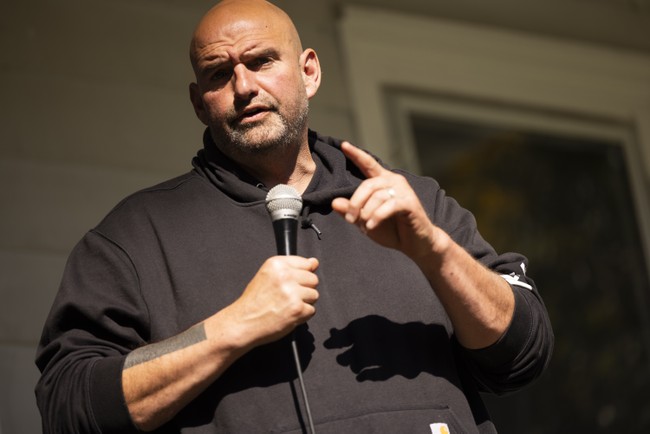The United States has “not a huge amount of time” before China reaches parity or overtakes it in artificial intelligence, OpenAI CEO Sam Altman told senators Thursday.
Altman joined executives from Microsoft, AMD and CoreWeave in urging a light-touch approach to AI oversight in a Senate Commerce Committee hearing chaired by Texas Republican Ted Cruz. They warned lawmakers heavy regulation could cede ground to Beijing and hobble America’s booming AI sector. (RELATED: How Freaked Out Should We Really Be About Communist China’s New AI Model?)
“It is our belief that the American models, including some models from our company — OpenAI and Google and others — are the best models in the world,” Altman said. “It’s very hard to say how far ahead we are, but I would say not a huge amount of time. And I think to continue that leadership position … [coincides with] the need to win an infrastructure, sensible regulation that does not slow us down. The sort of spirit of innovation and entrepreneurship that I think is a uniquely American thing in the world. None of this is rocket science. We just need to keep doing the things that have worked for so long and not make a silly mistake.”
Cruz framed the issue as existential.
“The United States cannot allow regulation, even the supposedly benign kind, to choke innovation or adoption,” the senator said, touting forthcoming legislation to create a federal “regulatory sandbox” that would shield AI startups from state-level red tape.
“I will soon release a new bill that creates a regulatory sandbox for AI modeled on the approach taken by Congress and President Clinton at the dawn of the internet that will remove barriers to AI adoption, prevent needless state overregulation and allow the AI supply chain to grow rapidly here in the United States,” Cruz said. “That’s how we’ll accelerate economic growth, secure U.S. dominance in AI and beat China.”
Altman has not always portrayed government action as the greatest threat in the AI space. During his 2023 appearance before Congress, he urged the body to enforce a licensing regime for advanced AI systems. However, in this hearing, he portrayed regulation — rather than runaway algorithms — as the chief threat, casting America’s comparative lead over China as tenuous and urging lawmakers to accelerate data center construction and energy permitting.
deepseek’s r1 is an impressive model, particularly around what they’re able to deliver for the price.
we will obviously deliver much better models and also it’s legit invigorating to have a new competitor! we will pull up some releases.
— Sam Altman (@sama) January 28, 2025
Industry witnesses echoed that message. AMD CEO Lisa Su argued that “open ecosystems” and a robust domestic chip supply chain are vital, while CoreWeave founder Michael Intrator warned that a 20th-century infrastructure “cannot run a 21st-century economy.” Microsoft President Brad Smith called global adoption of American AI the decisive metric, noting that “the number one factor that will define whether the United States or China wins this race is whose technology is most broadly adopted in the rest of the world.”
Democrats on the panel, led by Ranking Member Maria Cantwell, pressed for guardrails but signaled openness to a lighter touch so long as consumer protections advance. Altman, for his part, endorsed a “risk-based” framework yet resisted pre-deployment testing mandates, telling senators the internet’s light-touch regulatory launch should be the model for AI.
Cruz’s forthcoming bill is expected to mirror the Telecommunications Act of 1996 internet provisions, blocking states from erecting conflicting AI rules and fast-tracking permits for data center projects like OpenAI’s new “Stargate” super-cluster in Abilene, Texas.
All content created by the Daily Caller News Foundation, an independent and nonpartisan newswire service, is available without charge to any legitimate news publisher that can provide a large audience. All republished articles must include our logo, our reporter’s byline and their DCNF affiliation. For any questions about our guidelines or partnering with us, please contact [email protected].
Read the full article here







![Anti-ICE Karens Go Viral Over Home Depot Confrontation with Federal Agents [WATCH] Anti-ICE Karens Go Viral Over Home Depot Confrontation with Federal Agents [WATCH]](https://www.lifezette.com/wp-content/uploads/2024/12/2024.12.11-07.01-lifezette-6759e17645c20.jpg)


![DOJ Charges Restaurant Owners in Multi-State Illegal Alien Conspiracy [WATCH] DOJ Charges Restaurant Owners in Multi-State Illegal Alien Conspiracy [WATCH]](https://www.lifezette.com/wp-content/uploads/2025/05/2025.05.04-12.16-lifezette-68175a924ccfc.jpg)

